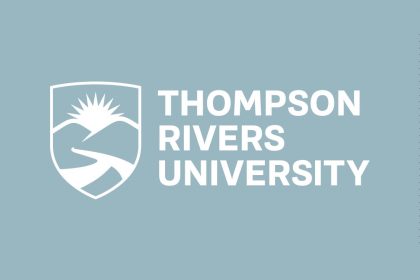Following an extensive program review of the Education Assistant Program at Northern Lights College in 2017–2019, First Nations Studies 100 (FNST100) became a required course for program completion. As the faculty considered how to deliver the coursework in a way that interrupts colonial narratives and promotes an Indigenous voice, it became clear a significant revision of the current FNST100 curriculum was needed. This research project is the outcome of that desire.
Blog post by BCcampus Research Fellow Carol Burbee and Brittney Fouracres
Research Problem
The research problem is the gap between our desire for FNST 100 to promote and advance the work of the Truth and Reconciliation Commission’s Calls to Action and the current colonial narratives and perspectives embedded in the course curriculum and pedagogy.
Research Questions
The researchers are open to multiple ways of being and of questioning the curriculum work. We construct this work in dialogue and document the process as it unfolds in curriculum revisions. This frame counters modernity and the need to monitor and measure prescribed outcomes by allowing us to “work with purpose, but without guarantee” and respond to what lies beyond FNST 100’s present identity (Higgins 2017, 96).
Methodology and a Decolonizing Approach
A Northern Lights College faculty member and an Education Assistant Program alumni who represent both Indigenous and non-Indigenous worldviews collaborate on the work. The project is process-oriented as we strive to decolonize and Indigenize the curriculum and pedagogical practices in FNST 100.
The research embodies a decolonizing approach. We strive to interrupt the practice of identifying the question before each meeting and instead co-construct a path together that often invites us to circle back on earlier work. We notice as we revisit earlier curriculum conversations, we take new paths, and the curriculum becomes richer and more nuanced. As researchers, the freedom to revise also supports us to not “feel so frantic in [our] heads” (Fouracres 2021). We are discovering that before any agreement can happen, we must make a connection, demonstrate respect, and generate love (Alfred 2005). As we explore and revisit the curriculum, we are interrupting the exclusion that exists in post-secondary education. “This exclusion is institutional in nature and takes the form of a dominant epistemology (ways of knowing what is ‘real’) in teaching, assessment, and research that serves to disregard or even devalue Indigenous ways of knowing” (Larkin 2011, 2). In learning to revisit our curriculum development, we hear new voices in it and shine a light on stories and perspectives that were once excluded.
This research is supported by the BCcampus Research Fellows Program, which provides B.C. post-secondary educators and students with funding to conduct small-scale research on teaching and learning and to explore evidence-based teaching practices that focus on student success and learning.
Learn more:
References:
Alfred, T. (2005). Wasa’se: Indigenous pathways of action and freedom. Broadview Press.
Higgins, M. (2017). Post-qualitative mo(ve)ments: Concluding remarks on methodological response-abilities and being wounded by thought. Reconceptualizing Educational Research Methodology 8(3), 89–101.
Larkin, S. (2011). Indigenous perspectives: Enriching scholarship and practice. Australian Social Work 64(1), 2–5.
Truth and Reconciliation Commission of Canada. (2015). Honouring the truth, reconciling for the future: Summary of the final report of the Truth and Reconciliation Commission of Canada, www.trc.ca.
© 2022 Carol Burbee and Brittney Fouracres
The featured image for this post (viewable in the BCcampus News section at the bottom of our homepage) is by Element5 Digital from Pexels
